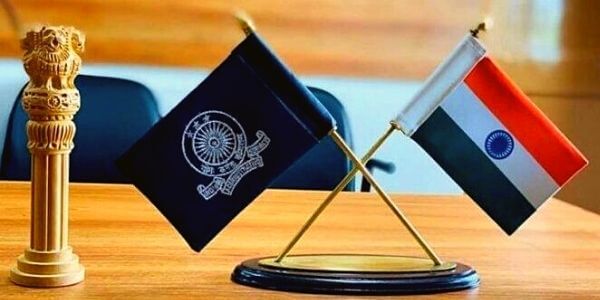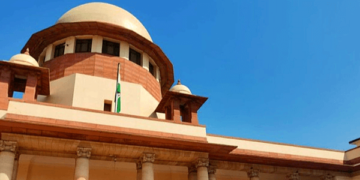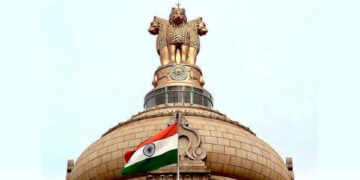Millions of youngsters aspire to become IAS officers in India, but only a few succeed. Indian civil service officer (ICS) is the highest post in India as a government and administrative job, with a good salary and a lot of respect. That prestigious position not only comes with honor but also with responsibilities. We have included information about the ICS Exam, Full Form, ICS Officers, Indian civil service history, India’s first civil service officer and so on in this article. For more information, please read the entire article.
History Of Indian Civil Service
IAS is a competitive civil service test that aids in the administration and management of a country by qualified individuals. The steel structure for IAS was built during the reign of the East India Company in the nineteenth century. Therefore, every IAS candidate should be familiar with the civil service’s history. Before we begin, please check out the following important link- UPSC History Syllabus – IAS Exam (CSE) Optional Syllabus.
Indian Civil Service History
- The origins of civil service in India for administrative purposes can be traced back to the period following 1757 when the East India Company ruled de facto in parts of India. The Covenanted Civil Services program was established by the company (CCS). CCS members were required to sign covenants with the company’s board of directors.
- The service became known as the Imperial Civil Service after the Revolt of 1857 when the company’s rule ended, & power was transferred to the British Crown, i.e., after 1886. It was later dubbed the Indian Civil Service.
- In 1854, the Macaulay Committee recommended that appointments to the service be made on the basis of merit rather than the company’s patronage. After 1855, the only way to join the ICS was to pass a competitive examination. It was only open to Indians. (The Macaulay Committee was established under the Indian Charter Act of 1853.)
- The Aitchison Commission, chaired by Sir Charles Umpherston Aitchison, recommended in 1886 that Indians be employed in government service as well.
- In 1912, the Islington Commission proposed that Indians fill 25% of the higher-ranking positions in the service. It was also suggested that higher-level recruitment be done in India and England in equal measure.
- India has hosted the ICS exam since 1922.
- The Public Service Commission of India has appointed Sir Ross Barker as its chairman (the forerunner of the Union Public Service Commission) on October 1, 1926.
- In 1924, the All India Services were renamed Central Superior Services. Because Europeans were scarce after 1939, the number of Indians in the service increased.
- The ICS was renamed the Indian Administrative Service after independence (IAS).
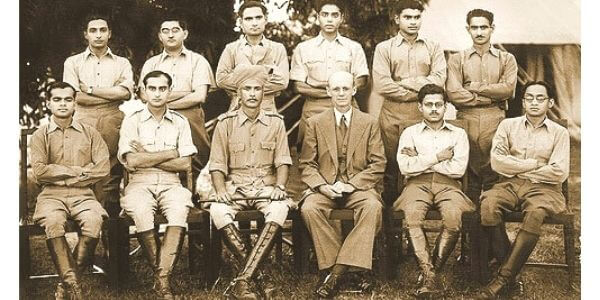
Facts About ICS Exam
- In 1863, Satyendra Tagore became the first ICS Officer (Indian Civil Service). When Satyendra Tagore passed the exam, he was only 21 years old. He was a member of the renowned Tagore family of Calcutta.
- Charles Cornwallis is known as the “Father of the Indian Civil Service” because he restructured and modernized the Indian civil service.
- R Pillai was the first IAS official to be appointed Cabinet Secretary.
- Civil Service Day was recently marked in India on April 21st. On this day, civil workers who monitor the administrative procedures of the federal and state governments are remembered for their efforts.
- In 1924, the All India Services became the Central Superior Services. Because Europeans were in short supply after 1939, the number of Indians in the service increased. The Indian Administrative Service was formed after independence from the ICS (IAS).
Between February 02, 2022, and February 22, 2022, you can apply for UPSC CSE 2022. Click Here. IAS is the highest-ranking of the 24 services available through the UPSC’s civil services test. IAS members work in the federal government, state governments, the public sector, and international organizations. That’s all about Indian civil service history.
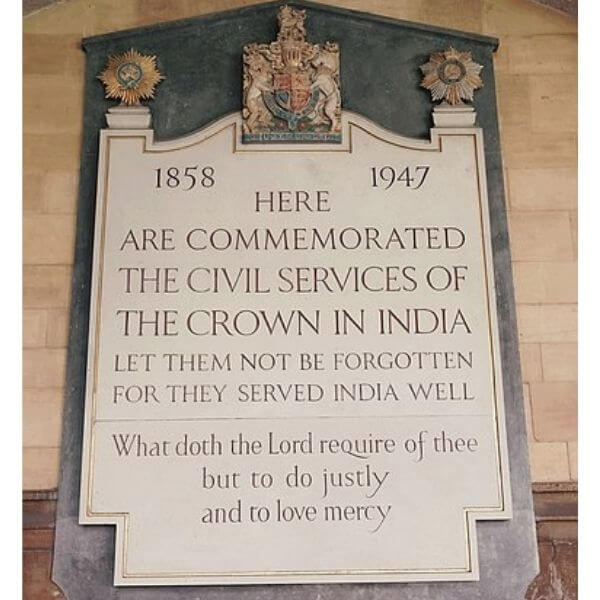
What Is ICS Exam?
Now, let us talk about what is ICS Exam is, ICS Full form, the Indian civil service exam eligibility, the selection process, and a few tips for preparing for your exam. Civil services jobs are jobs that are directly tied to public service and are highly regarded in India. The Indian Civil Service (ICS), formally known as the Imperial Civil Service, was the British Empire’s senior civil service in India between 1858 and 1947. The full form of ICS is Indian Civil Sevices. The civil service, both at the federal and state levels, is the backbone of government administration. The UPSC conducts Civil Service Exams for federal government positions, whereas the PSC in each state fills state government positions. Every year, the UPSC conducts the Civil Services Exam, which includes roughly 24 services. IAS, IFS, & IPS are examples of these services.
Eligibility criteria
- A citizen of India is required. A citizen of India,
- (A) a subject of Nepal, or
- (B) a subject of Bhutan, or
- (C) a Tibetan refugee who arrived in India with the intention of permanently settling in India before January 1, 1962, or (D) a person of Indian origin (PIO) who arrived in India with the intention of permanently residing in India from Pakistan, Sri Lanka, Burma, East African countries of Kenya, Uganda, United Republic of Tanzania, Zambia, Malawi, Ethiopia, Zaire (E)
- The candidate must be over the age of 21.
- To take the UPSC exam, a candidate must have at least a bachelor’s degree from a recognized university.
Number Of Attempts
- 6th attempt for the general category
- Up to the age of 35, 9 attempts for the OBC Category.
- There is no limit on the number of attempts for SC and ST candidates up to the age of 37.
- For physically handicapped folks, there are nine attempts. Up to the age of 42 years, if they fall into the General, OBC, or EWS categories.
- Physically challenged folks have no limit on the number of attempts they can make. As long as they are in the SC or ST group and are under the age of 42, they are eligible.
Selection Procedure
There are three stages to the selection procedure. The first step would be to conduct a preliminary examination. It would be a multiple-choice exam with one paper each for Optional and General Studies. The second would be a nine-paper subjective main examination. A personality exam would be the third and final stage.
Few Tips For Preparing Your ICS Exam
- Prepare an Appropriate Time Table.
- UPSC Syllabus Study and Revision Should Be Part Of Your Exam Preparation.
- Textbooks from the National Council of Educational Research & Training (NCERT).
- Concentrate on the fundamental principles and take notes.
- Previous Years Question Papers for IAS Practice Newspaper Reading/Current Affairs.
- Don’t forget to solve the mock test.
The following suggestions will assist you in confidently facing the Civil Services Examination. Further, we will discuss the First ICS officer.
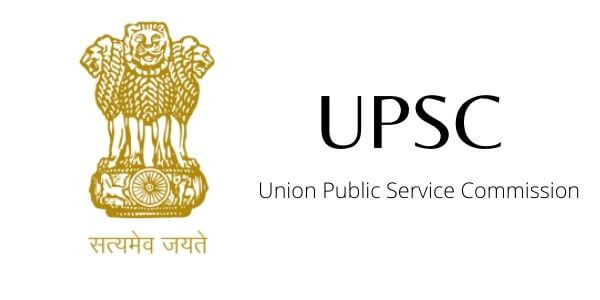
First Indian IAS Officer
One hundred fifty-seven years ago, Satyendranath Tagore became the first Indian to join the Indian Administrative Service (IAS) (ICS Officer). On June 1, 1842, he was born in the Tagore family to Maharshi Debendranath Tagore and Sarada Devi. But, first, we will discuss a few points on ICS Officer.
- Rabindranath Tagore’s elder brother, Satyendranath Tagore, was the first Indian to pass the Civil Services Examination in 1864.
- Satyendranath Tagore traveled to England from India in 1862 to study for the exam. He was chosen for the civil service in 1863, and he returned to India in 1864 after finishing his study in England.
- He wrote a lot of songs. His patriotic Bengali language song “Mile Sabe Bharat Santan, Ektan Gago Gaan” (Sing in unity, India’s children) was recognized as the country’s first national anthem.
- He was a poet, author, & linguist, among other things. Tagore could communicate effectively in three languages: English, Bengali, and Sanskrit.
- Satyendranath was also a member of the Brahmo Samaj movement and the president of the Bangiya Sahitya Parishad from 1900 to 1901. He wrote various literary works and translated Bal Gangadhar Tilak’s Geetarahasya into Bengali.
- This ICS Officer worked in the civil service for 30 years and had a number of high-ranking jobs.
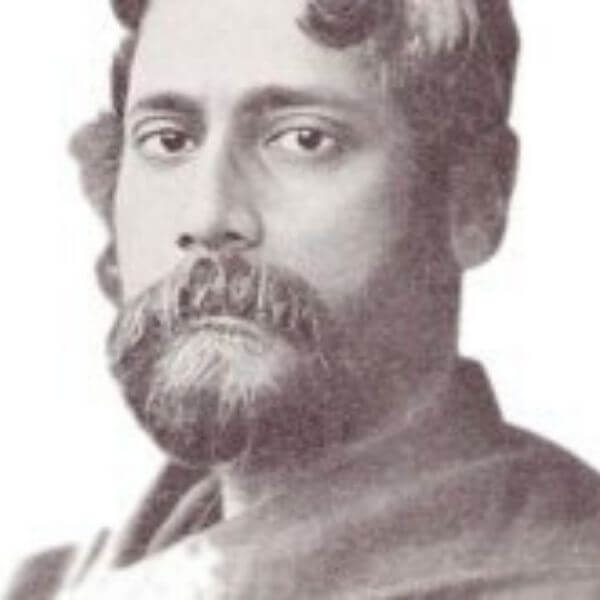
Conclusion- ICS Exam
This article will inform you about the Indian Civil Services, as well as the history of Indian administrative service in India. We have discussed ICS’s full form and other information related to IAS. We have also added details of India’s first civil service officer. Many people aspire to work as ICS officers. Hard work, advice, and determination are the only things that will assist UPSC hopefuls to pass the IAS exam.

FAQs- ICS Exam
No, the UPSC Civil Services Exam, often known as the IAS Exam, is held to fill over 24 positions in the central government and its many ministries. Indian Administrative Service, Indian Foreign Service, Indian Police Service, Indian P&T Accounts & Finance Service, Group ‘A,’ Indian Audit and Accounts Service, Group ‘A,’ and other Group A services are among the services offered by UPSC Civil Services.
Before it was renamed the Indian Administrative Exam, it was known as the ICS exam. Sir Ross Barker presided over the inaugural test, which took place on October 1, 1926. The ICS exam has been held in India since 1922. The Public Service Commission of India, which was the progenitor of the Union Public Service Commission, UPSC, administered it.
In 1920, Subhash Chandra Bose passed the Indian Civil Services Exam in England. He did, however, leave the service in 1921.
Indian Civil Services
Editor’s Note | Supreme Court of India
In conclusion, the IAS test is one of India’s most essential and difficult examinations. Furthermore, the exam attracts a large number of students and working professionals. This article will learn about the Supreme Court of India (Delhi) – Total Judges, Established and Post. A link to the official website has also been supplied. Furthermore, the exam requires a lot of time. Therefore, one must establish a proper strategy and provide time for all of the exam’s subjects and time for review. Aside from the material and topics, current affairs play a significant role in the IAS prelims and mains examinations. The current advancements in various domains of the world are used to frame objective and subjective questions. We wish you the best of luck.

